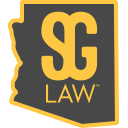The person who is at fault for a motor vehicle collision has a lot to lose. The other people affected by the wreck will potentially file a claim against their insurance coverage. Those claims will likely mean a notable increase in the at-fault driver’s insurance premium.
Insurance isn’t always enough to pay for medical care or replace someone’s wages when a crash is severe, and the driver at fault could face a civil lawsuit. State law allows personal injury and wrongful death claims when one person causes financial losses, and someone’s current assets or future income could be at risk and such lawsuits.
Minimizing your liability after a crash means convincing the police officer filing the report on the collision that you are not the one who caused the wreck. How do you establish fault?
Provide a clear description of your perspective
Police officers are not omniscient. They won’t inherently know what happened unless someone tells them in detail. Whether you think you saw the other driver nodding off at the wheel when they were next to you in traffic and then they swerved into your lane and hit you or you think they showed signs of chemical intoxication that have dissipated while waiting for a police officer to arrive, those suspicions could help an officer better investigate.
Document your experience
If you are fortunate, the collision you experience will occur at a location captured by traffic cameras or nearby security cameras. However, many collisions occur where there are no cameras recording, which means that the evidence you collect and your statement to the police will play a major role in the crash report.
Moving your vehicles after the crash is a smart way to minimize the risk of a secondary wreck caused by someone else striking the already immobilized vehicles. However, before you take that step, you may want to capture some photographs or video with your mobile phone to show the position of the vehicles prior to altering the scene of the crash for the sake of traffic and safety.
Know when to challenge the official report
Police officers and insurance adjusters can make mistakes, especially if the other driver lies about their actions or role in the collision. When you believe that the official police report or the decision by the insurance companies involved does not reflect the truth of the situation, you may need to bring in professional help to demonstrate what really happened.
Proving that you are not the one to blame for a recent car crash could protect you financially and give you access to the right to claim compensation for yourself.
